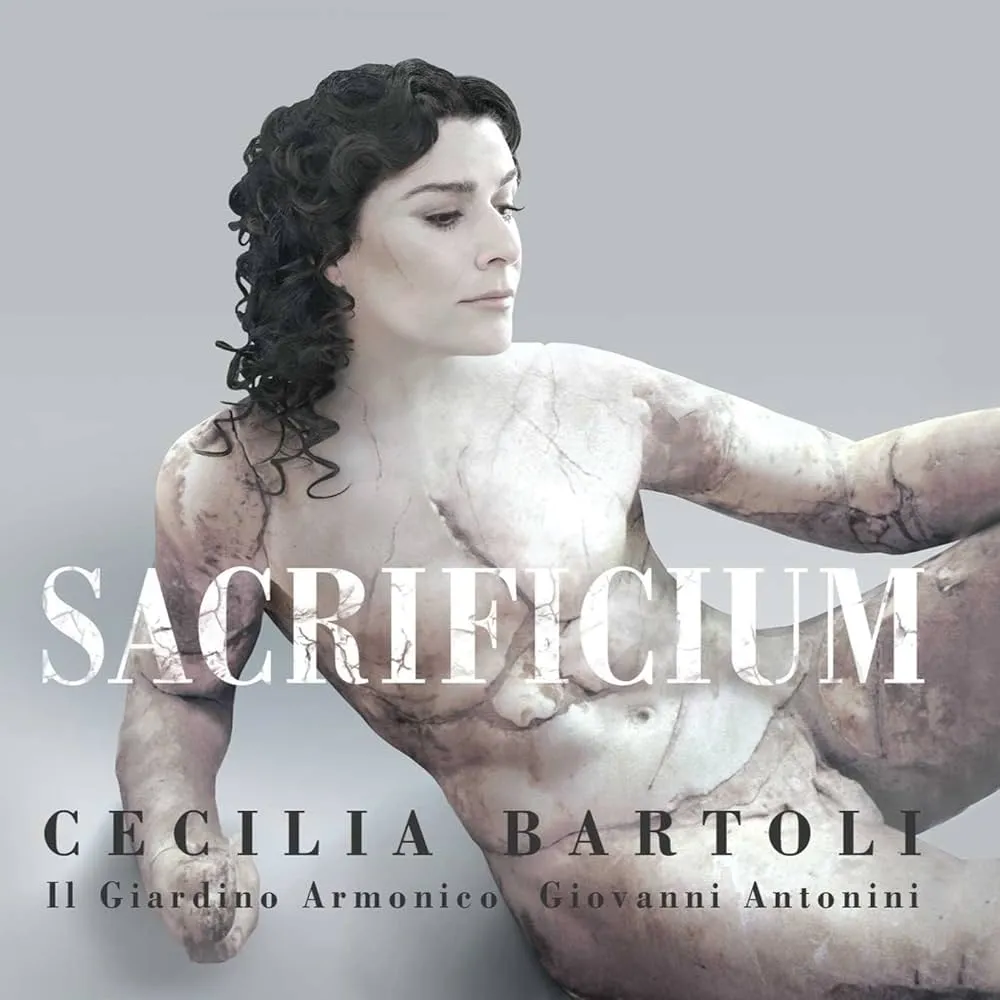A sympathetic plea for the castrati
I come from a religious family. Our Jesus? Famous, mezzo-soprano opera sensation that is Cecilia Bartoli. Worship is putting on a Cecilia Bartoli album. Confession is putting on another Cecilia Bartoli album. The second coming is not the return of Christ, but Cecilia Bartoli coming back to the US. One of the greatest Bartoli's album is Sacrificum. I still remember the super striking album cover. It is her face photoshopped on an ancient marble statue of a male body. What is Cecilia Bartoli most famous for? She is famous for interpreting music from the Age of the Castrati (17th-18th century). This was the infamous age where boys were castrated before puberty to keep their voice.

If you don't listen to opera, let me tell you that music from this age is exhilarating. It's decadent flourishes, long runs, and beautiful ornamentation. It's like listening to elaborate gymnastic routines. It's fireworks. For slower music, it's sensual. We have few recordings of what the castrati voice sounds like, but we can listen by proxy to many mezzo-soprano women (like Cecilia Bartoli, Ann Hallenberg, and a lot of others) and countertenor men (Philippe Jaroussky, Franco Fagioli). The music is just dang' ol fun. I tell my friends I listen to opera because it tickles a part of my brain that I cannot get with other music. I do not seek intellectual simulation from opera, I seek a cheap thrill.
Recently, I watched an SNL skit of Ariana Grande where she plays a young boy unfortunately castrated by his parents. His parents do not think it's a big deal, but the camera pans to Ariana Grande's face, and her expression is of unspeakable horror.

It's all played for laughs. OK, I laughed too, but sometimes I want to defend the castrati. They're always played off as jokes, but there is a certain tragedy to their lives. After all, Sacrificium means offering to the gods , Cecilia Bartoli declares that boys were sacrificed on the altar of art.
If you read about the history of the castrati, many of them were forced into castration by their parents. Generally, poor families that hoped that their son would attain wealth. It was a dangerous procedure. If they survived, the castrati had some of the most brutal training regimes at time. In additional to vocal training, they were trained in harpsichord, music theory, and music composition. Then the castrati would debut as teenagers to the public that both wanted them... But loathed them. As Cecilia Bartoli puts in her interview:
In fact, the one that they had the possibility to make a career, at least they had the satisfaction of success, of money and things like that. But of course they also - even themselves they had a very difficult life, you know? Because to be a castrato, so they were in one way loved by the society and in the other way they were rejected, because they were no men, no women. So it's really, really a tragic story. It's one - as I said before, glorious, you know, the tragedy and the glory, you know?
If you're ever in a competitive field, for every star (Farinelli, Cafarelli, etc), there are the other hundreds (equally talented) that did not make it. Castration morphs your body. For a castrato, the only thing in life that he knows is music. Outside of music, what can they do? They are specifically trained for one thing! They were not allowed to marry. There is no way to hide what they are. To me that is the great tragedy. I listen to the music of the castrati, but I know only of the most famous ones, there are thousands whose name will not be celebrated. Some boys were forced to be castrati, others chose. There's tragedy in both. What if you sacrificed everything, but you couldn't be the greatest?
In some ways, I somewhat relate to the castrati as an academic. Yes, there is something problematic of comparing my academic career with someone being castrated. I spent so much years getting a very specialist training. My big fear is what happens when I leave? What happens to the castrati (academics) that don't make it? Perhaps it's my own naive disillusion, I hope their life continued.